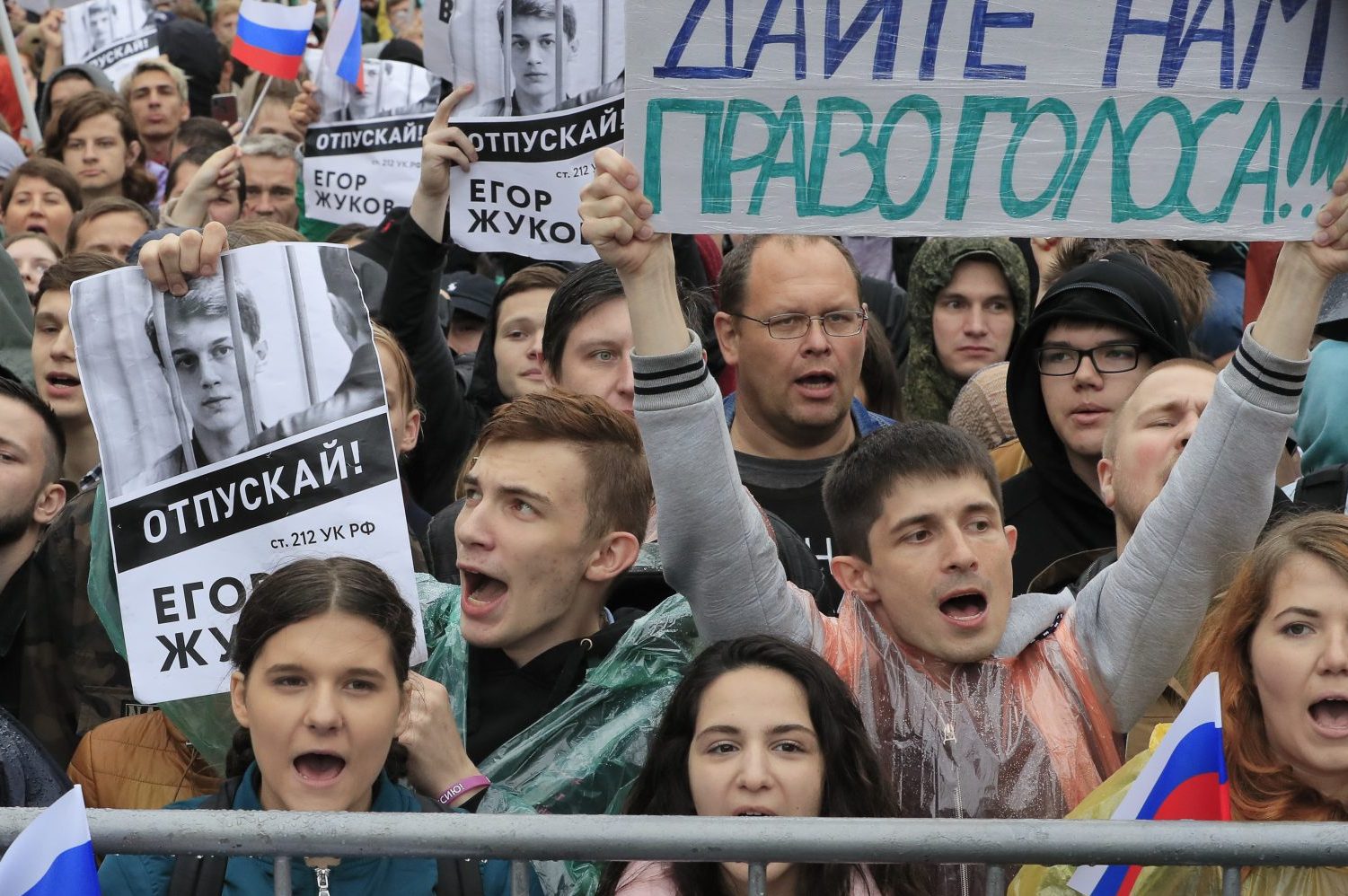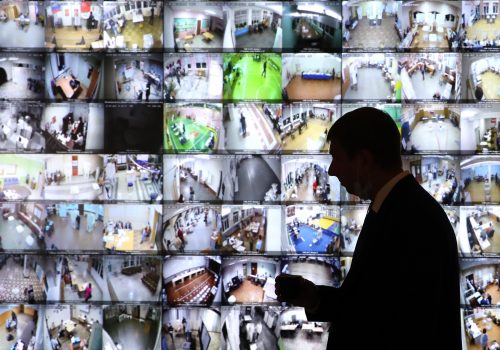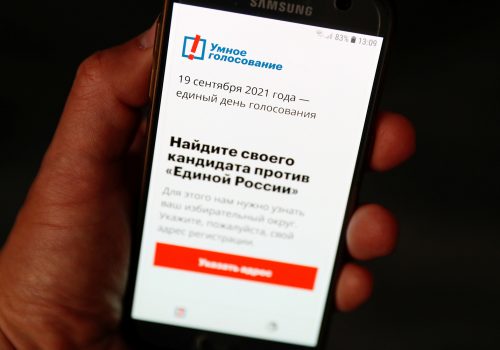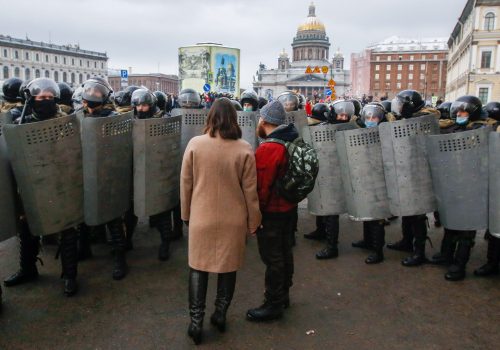After two decades under Vladimir Putin’s rule, Russians are taking to the streets in growing numbers to voice their opposition to the Kremlin and its increasingly unpopular policies. Russian youth now stand out as some of the loudest voices calling the Kremlin to account. As authorities have attempted to control, distract, and repress this wave of youth activism, a new generation of Russians is finding its footing on the streets in protests and demanding an end to harmful Kremlin policies.
Despite the momentum gained from a summer of protest, Russian opposition groups continue to face serious challenges, which they will have to overcome before they achieve long-term success in Russia’s tightly controlled politics.
The authors of the paper, Dr. Olga Khostunova and Ms. Ksenia Kirillova, discuss their research and the implications with Ambassador John Herbst and Dr. Maria Snegovaya.
This event is hosted in partnership with

spotlight
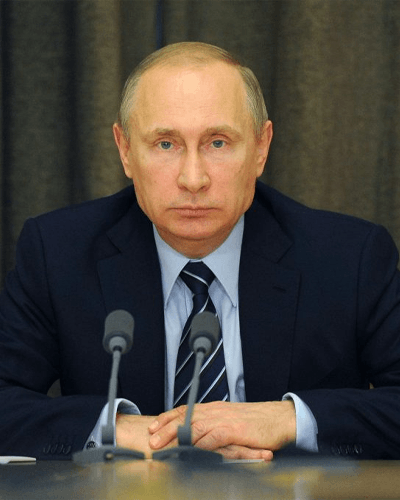
The Kremlin and the Russian people
Putin’s Russia
Russia was the dominant republic in the former Soviet Union and took tentative steps toward an open society and market economy in the 1990s. But during the early 2000s, under leader Vladimir Putin, its direction changed. At the end of the 1990s, this quasi-democracy pivoted to an authoritarian direction.
Image: Participants shout slogans during a rally to demand authorities allow opposition candidates to run in the upcoming local election in Moscow, Russia August 10, 2019. REUTERS/Tatyana Makeyeva
